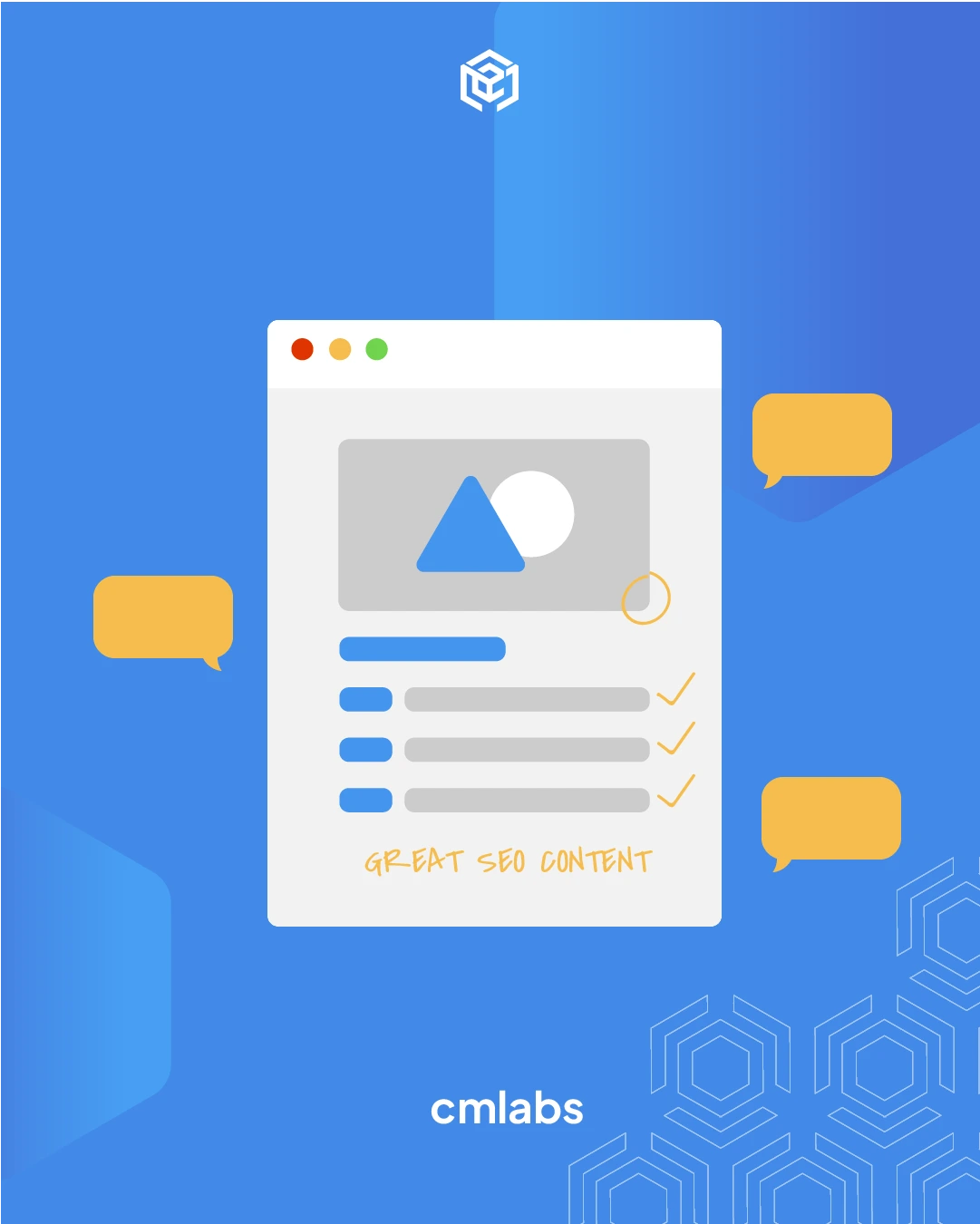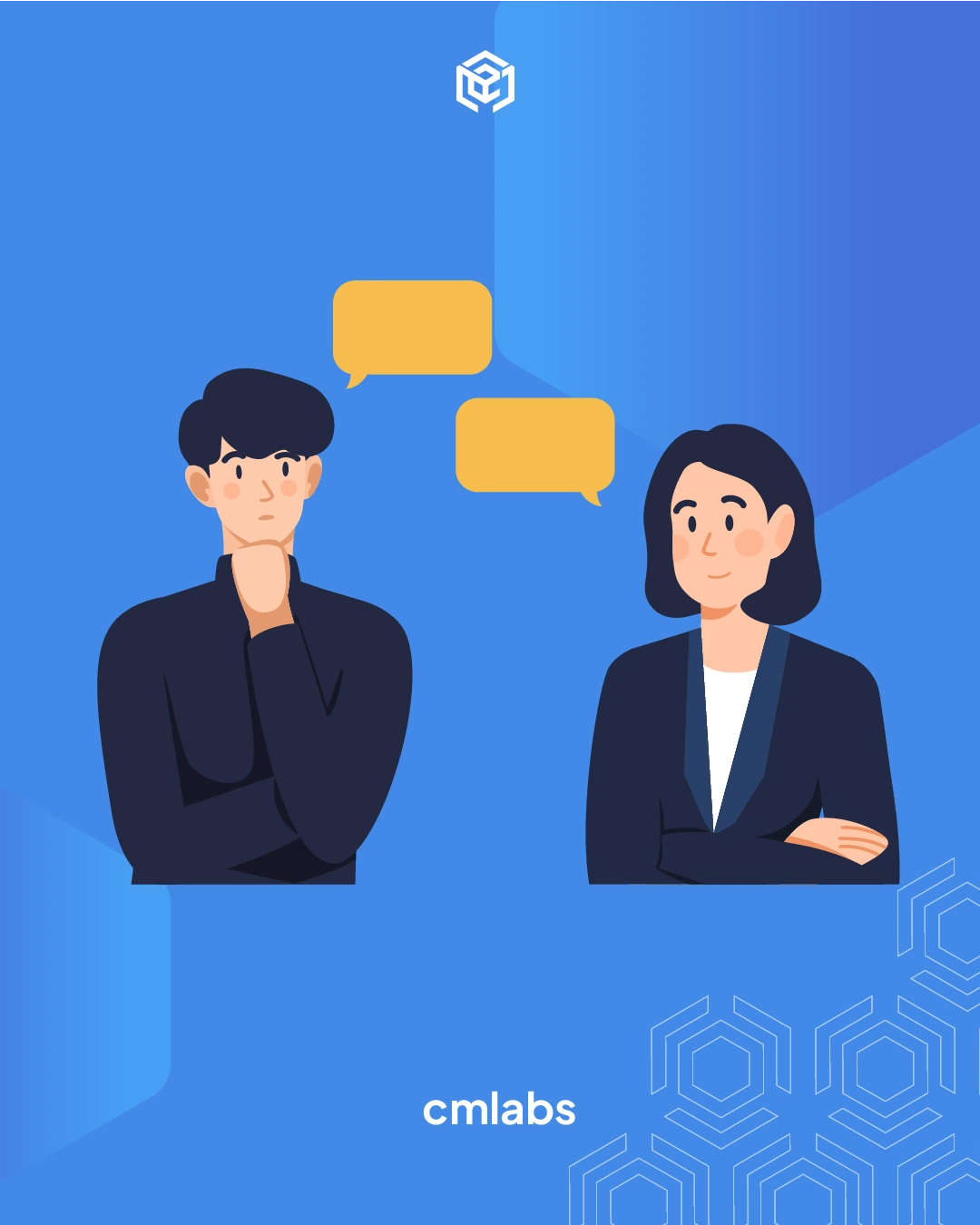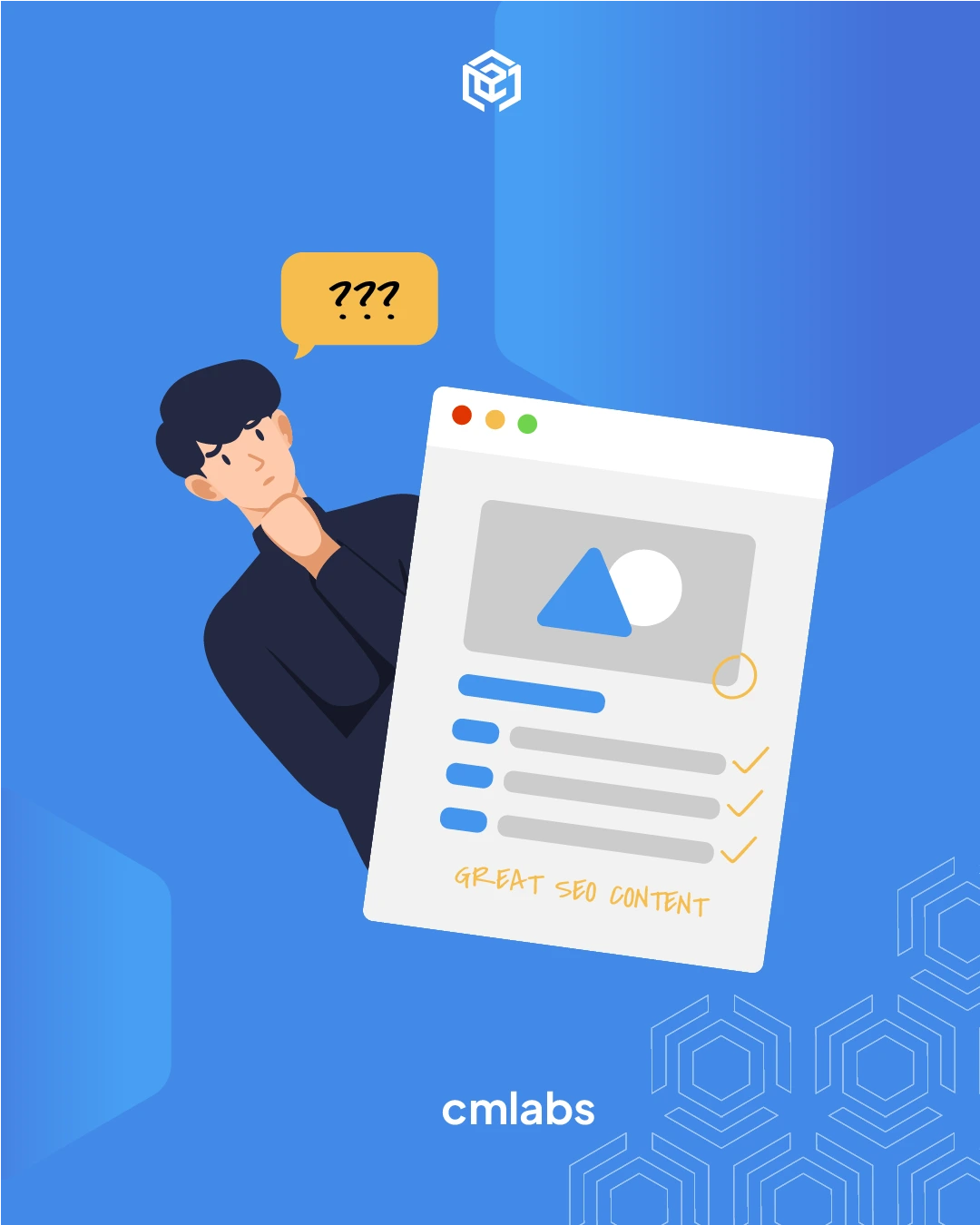We use cookies
This site uses cookies from cmlabs to deliver and enhance the quality of its services and to analyze traffic..
SEO SERVICES
Conduct in-depth technical website audits, strategically develop website projections, and increase your website authority.
ASO SERVICES
Elevate Your App’s Presence with Our Expert ASO Services – Boost Visibility and Drive Downloads!
WRITING SERVICES
We offer a variety of writing services to suit different business necessities. Reach broader audiences or lead specific industries? We've got you covered!
SEOlutions
A unified source of truth!
SEO & Digital Maternity Solution
SEO & Digital Maternity Solution: Leverage Cross-Platform Insights to Elevate Your Strategy with Expert Consultation
SEO & Digital Maternity Solution
Data Solution options:
Starting from Rp200 mio
Reinventing how a company get creative treatments
A new way to get your creative needs done. Agile team, efficient cost, and expedient way in a flexible yet scalable subscription plan!
Creative-as-a-Services
CaaS package options:
Based on Subscription
Pioneer in digital marketing software powerhouse
We’re excited to unveil our new range of Tech Solutions designed to drive your digital success. Whether you’re looking to enhance your website’s performance, streamline your tech stack, or unlock deeper insights from your data, we’ve got you covered.
Starting from Rp250 mio
Our Clients
Research and innovation center for digital transformation
Digital marketing combines technical skills and business knowledge at every stage. For marketing teams, improving budget management efficiency is crucial, as time is an invaluable resource that should be used wisely. At Sequence, we are dedicated to empowering you to optimize efficiency and strategic planning, ultimately enhancing the impact of your digital marketing efforts.
Subscription-based (IDR1,800/keyword)
Our Clients
BeyondSEO
References
SEO Tools for Webmasters
SEO Tools for Writers
SEO Tools
FIND THE SUITABLE PARTNERSHIP FOR YOUR COMPANY
Check out which cmlabs partnership program suits your company
WHITE LABEL SEO
for CorporateYour company is granted exclusive partnership rights to provide SEO services to our important clients, and we will provide a dedicated backend team to support your efforts.
AFFILIATE PROGRAM
for BizdevA new affiliate program is being introduced for skilled marketers and individuals with strong networks, offering commissions of up to 7% for generating profits independently.
DIGITAL AGENCY
for Marketing Partnerscmlabs is an essential partner for digital agencies, providing a unique selling proposition in Search Engine Optimization (SEO).
BACKLINK PARTNERSHIP
for Media / BloggerWe have a vast database of bloggers and media outlets across Indonesia, categorized by region and media type, giving our clients an edge in managing their media and SEO activities.
OFFICIAL TRAINING
We provide ongoing professional development and support to SEO professionals to ensure they are equipped to meet market demands.
JOIN AS CONTRIBUTOR
for Content WriterGreat opportunity for SEO Writers around the world. T&C applied!
ACADEMIC PARTNERSHIP
Through partnerships with universities in Indonesia, cmlabs has helped align academic curricula with industry demands.
Partnership
Sector & Industries
Tell us your SEO needs, our marketing team will help you find the best solution
As an alternative, you can schedule a conference call with our team
Schedule a Meeting?Contact
Survey
We use cookies
This site uses cookies from cmlabs to deliver and enhance the quality of its services and to analyze traffic..
Last updated: Sep 06, 2024
Public Information Disclosure in Indonesia is rooted in the rights outlined in Article 28F of the 1945 Constitution, which guarantees everyone the right to seek, obtain, and access information to improve themselves.
To ensure that your technical SEO audit website reaches all audiences without exclusion, implementing inclusive SEO is needed.
Inclusive SEO is the practice of optimizing website content and structure to ensure accessibility for everyone, regardless of physical, mental, or intellectual abilities.
This approach goes beyond search engine optimization to also focus on making content accessible to users with disabilities.
This practice includes using simple language, providing alt text for images, ensuring compatibility with assistive technologies, and making content easy to understand for users with special needs.
Implementing these SEO practices can expand your audience reach, enhance user experience, and support digital inclusivity.
A variety of disabilities can create barriers to accessing information online, including physical, sensory, mental, and intellectual challenges.
Therefore, inclusivity in SEO is essential for reaching a broader audience and is reinforced by Law No. 14 of 2008 on Public Information Disclosure in Indonesia, which emphasizes the need for accessible information dissemination.
This SEO practice is more than a trend; it is a critical aspect of a comprehensive digital marketing strategy. It enhances user experience, fosters inclusivity, and offers several benefits.
Here are some other reasons why this SEO strategy is important:
While the core principles of this SEO align with general SEO practices, the focus here is on enhancing the user experience for individuals with special needs.
Here’s how you can implement it:
First, you need to know your audience’s needs and preferences.
You can gather demographic data and identify specific accommodations required, such as alternative text for visually impaired users or transcriptions for hearing impaired users.
Then, you can create audience personas that reflect users' cultural, linguistic, behavioral, and special needs.
After identifying your target audience, the next step is to determine the keywords you want to target.
Keyword research for inclusive SEO is actually not much different from regular keyword research. However, you need to consider the audience's perspective and need more.
The language you use in your content reflects your brand. You need to use simple, clear language that is easily understood by people of varying abilities.
In addition, it’s better to use inclusive language in this SEO practice and avoid language that might reinforce negative stereotypes or biases. The inclusive language helps SEO to open up your content for more people.
For example, don't hastily assume that cosmetics are only used by women.
Next, it’s better to use inclusive design to make it accessible for users with disabilities.
The use of inclusive design is also outlined in the Accessible Media Guidelines by SAPDA. It states that media should be presented in an accessible and inclusive format, even if the content already has simple and clear language.
For example, avoid using red and green and instead use more contrasting blues and oranges that are safe for colorblind audiences.
Aside from colors, you can also differentiate elements on the website, such as adding textures or patterns to help differentiate.
Moreover, content fonts can also be considered so that they are not too small for mobile users.
The use of alt text is very important to make visual content design accessible to people with visual impairments.
Alt text is a short description of the image that helps the audience understand the image.
Besides usability, alt text can help search engines increase your website's relevance on search pages.
The navigation structure of a website should be clear and categorized, for easy access by the audience.
You can use easy-to-understand descriptive text for navigation links, build internal links, and use heading tags in the content.
To improve website accessibility, you can use responsive design for different devices, create content that is easy to understand, create user-friendly forms, and increase website loading speed.
You can identify bias by avoiding sensitive keywords and content. Additionally, you must ensure that your SEO strategy doesn't focus on specific regions.
Also, check your website's accessibility regularly and use the feedback as evaluation material.
You can work with experts to maximize website accessibility. This can help you conduct an audit and ensure that accessibility principles are integrated with a good and proper SEO strategy.
One important step you can't skip is user testing. This stage can help you make sure that your website is truly accessible to everyone.
To do this, you need to have some users visit the site and perform some activities on it, such as navigating pages, making purchases, or filling out forms.
You should include people with different types of disabilities so that you can identify the most common barriers to accessibility and optimize test results.
WDYT, you like my article?
Couldn't find result for "Mulki" try to search with different keyword
Suggestion:
Tell us your SEO needs, our marketing team will help you find the best solution
As an alternative, you can schedule a conference call with our team
Schedule a Meeting?



cmlabs Jakarta Jl. Pluit Kencana Raya No.63, Pluit, Penjaringan, Jakarta Utara, DKI Jakarta, 14450, Indonesia
(+62) 21-666-04470These strategic alliances allow us to offer our clients a wider range of SEO innovative solutions and exceptional service.

Psst! Hey there, SEO Stats and Tools SEO company! If you've ever planned of conquering the Germany market, you've come to the right place!